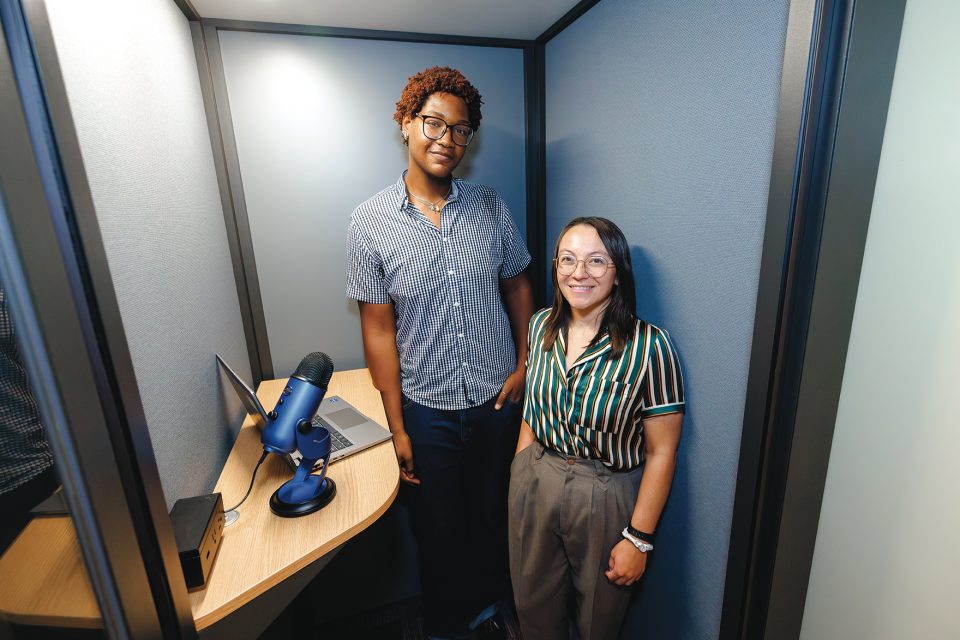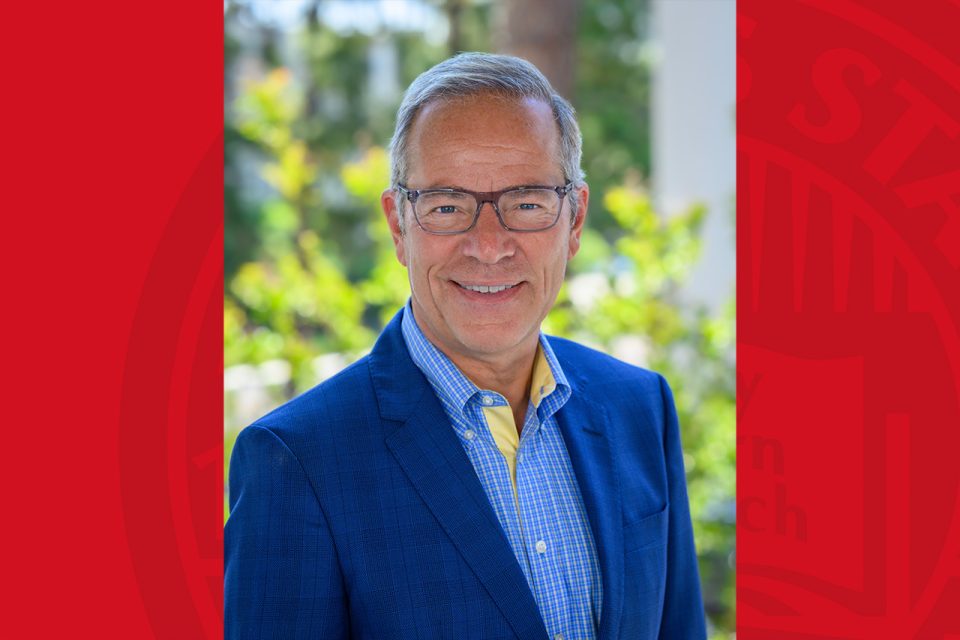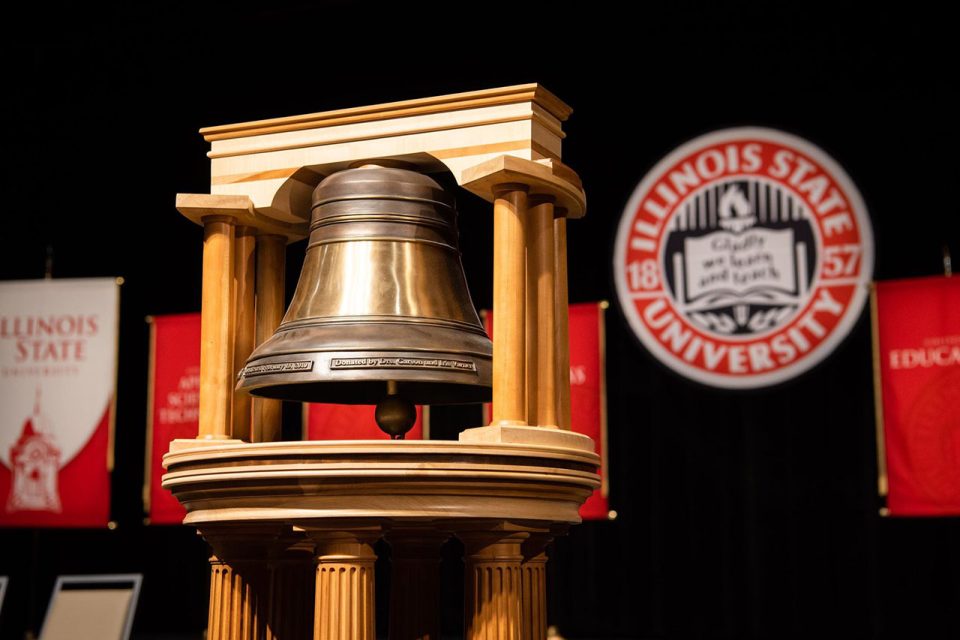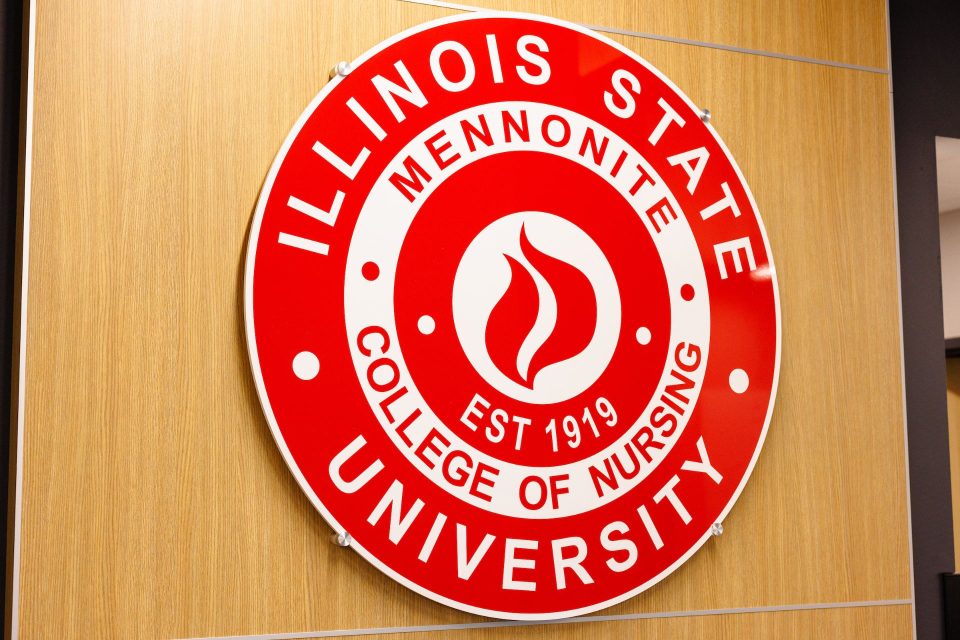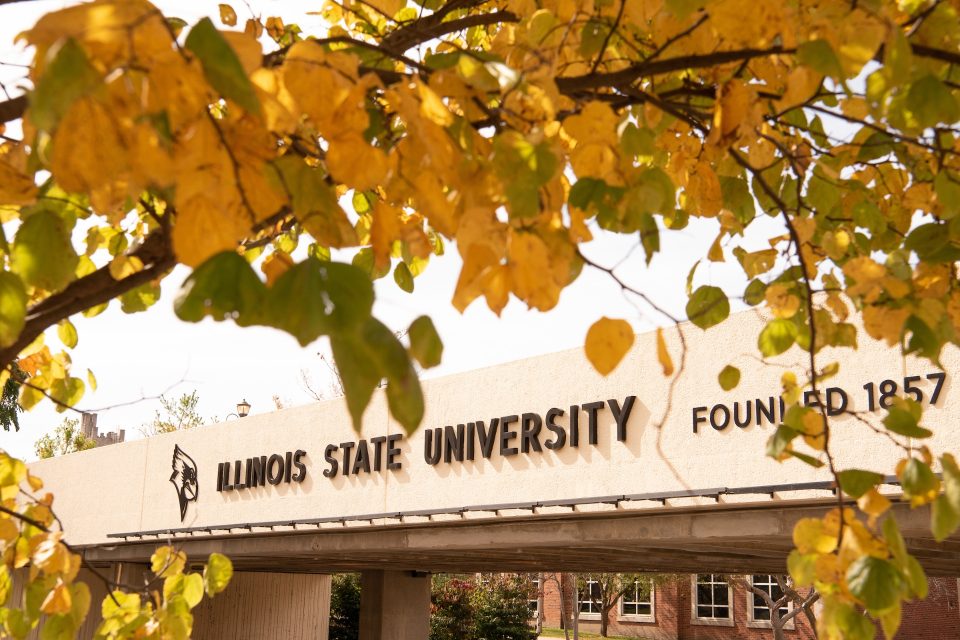New program pays ‘novice’ student researchers to work under faculty mentors
Last spring semester, Shemida Qualls analyzed data, learned how to run study participants, reviewed research literature, attended lab meetings, and received other professional development under Dr. Allison Nguyen, an assistant professor of psychology.
Appears In Redbird Scholar: Fall 2025 Fixed focus: Photography professor reclaims Filipino dignity stripped by colonialism Illinois State’s new simulation lab trains DCFS investigators Redbird Scholar Q&A: 5 questions for Office of Student Research Director Gina Hunter Milner Library’s open-access agreements level academic publishing field Doctoral student bridges theory and practice to become a better teacher Redbird Scholar grant and research news (fall 2025) Redbird media: Check out the latest #RedbirdScholar books (fall 2025) Vertical Farm grows sustainable food production, student learning opportunities Math grad student is Research Assistant of the Year for division of U.S. Army Corps of Engineers Read AllQualls didn’t have to wait three years into his undergraduate studies or until graduate school to get this research experience. The freshman psychology major was participating in a new program that pays Illinois State students to conduct research early in their careers.
“I never had a freshman working in my research lab, and this was fantastic,” Nguyen said. “It’s so nice to get someone so early in their career and be like, ‘Look at all the cool stuff you can do.’”
“We want to expand the opportunities for early career students to get involved in research, and especially students who normally wouldn’t consider themselves researchers or might not otherwise have time to take on some research.”
Dr. Gina Hunter
The opportunity was made possible by the NeSTeR (Novice Student Researchers) program, a federal work-study initiative that Illinois State’s Office of Student Research (OSR) launched at the beginning of 2025. OSR Director Gina Hunter created NeSTeR to encourage more freshmen and sophomores to conduct research. She noted that her office’s other grants—FIREbird (Faculty-mentored Independent Research Experiences) and BirdFEEDER (Fund for Experimentation, Enquiry and the Development of Student Research)—are directed to more experienced students.
“Both the FIREbird and the BirdFEEDERS require students to write a proposal,” Dr. Hunter said. “That means they already have some research experience. We want to expand the opportunities for early career students to get involved in research, and especially students who normally wouldn’t consider themselves researchers or might not otherwise have time to take on some research. This is for students who are work-study eligible, and so it is a job.”
Qualls and the four other initial NeSTeRs were paid $16 per hour to work about 10 hours a week throughout the spring semester. OSR matched students with faculty from across campus.
“Based on their interest, not only their major but just their general research interest, I paired them with faculty,” Hunter said. “So it wasn’t always a faculty member in their department. We had an Information Technology student who was interested in game design, so I contacted CTK (School of Creative Technologies), and they had a project that they could incorporate a sophomore. In another case, we had a Health Sciences student who wanted to get some lab experience, and (School of Biological Sciences Assistant Professor) Kyle Floyd said he could take her into his lab, so she’s learning some technical lab skills.”
NeSTeRs and their faculty mentors
- Shalom Adiboshi, sophomore computer science major, Dr. Kristin Carlson (associate professor, School of Creative Technologies) and Dr. Dan Cox (assistant professor, School of Creative Technologies)
- Kailyn Jeanne Parquet Smith, sophomore communication studies major, Dr. Jessica Rick (assistant professor, School of Communication)
- Shemida Qualls, freshman psychology major, Dr. Allison Nguyen (assistant professor, Department of Psychology)
- Leafar Sarmad Taher, freshman elementary education major, Dr. Amanda Cullen (associate professor, Department of Mathematics) and Jennifer Talbot (instructional assistant professor, Department of Mathematics)
- Juliana Zamora, freshman medical laboratory sciences major, Dr. Kyle Floyd (assistant professor, School of Biological Sciences)
Qualls joined the program to gain experience in a research lab and learn more about his major early in his career. “I just felt like it would be a good opportunity to do that.”
Hunter met with the students six times during the semester to discuss professional development topics as they related to research, such as communication, community, diversity, ethics, integrity, and team-building.
Hunter said the NeSTeR allows income-eligible students like Qualls to take advantage of federal aid they might otherwise leave on the table.
“They might not find a federal work-study job or find one they’re particularly interested in,” Hunter said. “There are lots of federal work-study jobs on campus, but instead of choosing one of those jobs, which may be less meaningful, why not use those funds to do something that will really further your career?”
Among the studies Qualls assisted with was Nguyen’s research focused on communication on the social media platforms Reddit and Discord. “Shemida has been doing a fantastic job, like brainstorming study ideas,” Nguyen said last spring.
Nguyen is a psycholinguist whose research occurs at the intersection of linguistic and psychological theory. “My work centers on how we use language with each other. And so what I’m interested in is how we come to understand each other when we have to negotiate a meaning.
“For example, if I say something is ‘kind of’ cool, how do we agree on how cool something is? Or I say someone’s ‘kind of’ tall, how do we come to agree on how tall someone is? We have to do a lot of really careful negotiation. And so I’m interested in how we enter and exit into these negotiation periods, and how we signal all of this stuff to our conversational partners.”
Qualls said he has learned a lot about analyzing data and understanding what it means in the context of the research.
“I think that it’s great that we’re able to pay people to do research,” Nguyen said. “Because it means more people can get involved. I think everyone who has the opportunity should do this.”
For more information about the NeSTeR program, contact the Office of Student Research at StudentResearch@IllinoisState.edu.
Latest Publications
- Presidential Speaker Series returns this fall with AI pioneer Kevin Surace, November 4The Presidential Speaker Series returns this fall to feature the "Father" of the virtual assistant and AI innovator, Kevin Surace, on Tuesday, November 4, 2025, at 7 p.m., in the Brown Ballroom, Bone Student Center.
- Celebrating Excellence: The LOVE Award at Illinois State UniversityIllinois State University proudly presents the Living Our Values in Excellence (LOVE) Award, a monthly recognition celebrating individuals and groups who exemplify the University’s core values in their daily work. These values include Excellence in Teaching, Learning, and Scholarship; Individualized Attention; Equity, Diversity, Access, and Belonging; Collaboration; Community and Civic Engagement; Respect; and Integrity. Whether
- Illinois State University launches new artificial intelligence lab for health research initiative with funding from National Institutes of HealthIllinois State University has launched an interdisciplinary PAIR project made possible through funding from the National Institutes of Health’s AIM-AHEAD PAIR seed program. The project is a collaboration between Illinois State’s School of Information Technology and Mennonite College of Nursing to use AI for early detection of Atrial Fibrillation.
- BN Innovation Hub takes another step forwardThe Bloomington-Normal Innovation Hub (BN Hub) took another step forward September 24 by officially launching its advisory board. The board is designed as a collaborative forum to foster innovation, cross-sector connection, and strategic alignment among institutions and organizations in the region with the express purpose of achieving the goals laid out in the BN Hub’s strategic plan.
- RISE Town Hall forums, October 22 and 23Join us for RISE Town Hall forums scheduled for Wednesday, October 22, 2025, at 2:30 p.m., and Thursday, October 23, 2025, at 10 a.m., in the Prairie Room, Bone Student Center. We will share updates regarding the new budgeting framework, process, and timeline, and answer questions.
- Nominations sought for Grabill-Homan Community Peace PrizeThe peace and conflict resolution studies program at Illinois State University is accepting nominations and self-nominations for the Grabill-Homan Community Peace Prize, which is named for Joseph L. Grabill and the late Gerlof D. Homan, Illinois State University professors emeriti of history who helped establish the interdisciplinary Peace and Conflict Resolution Studies Program.



